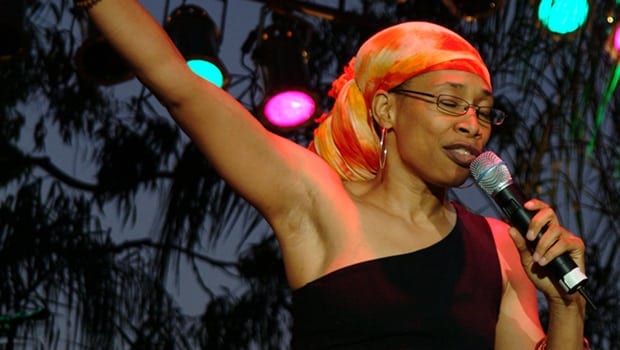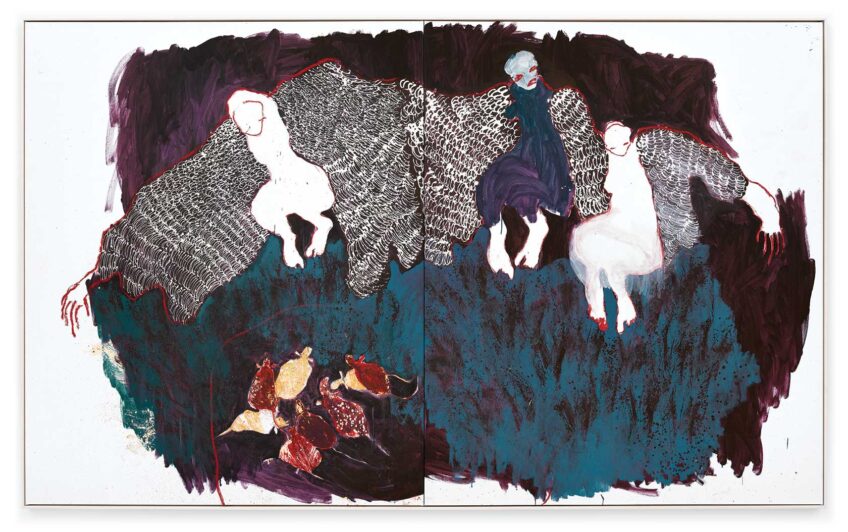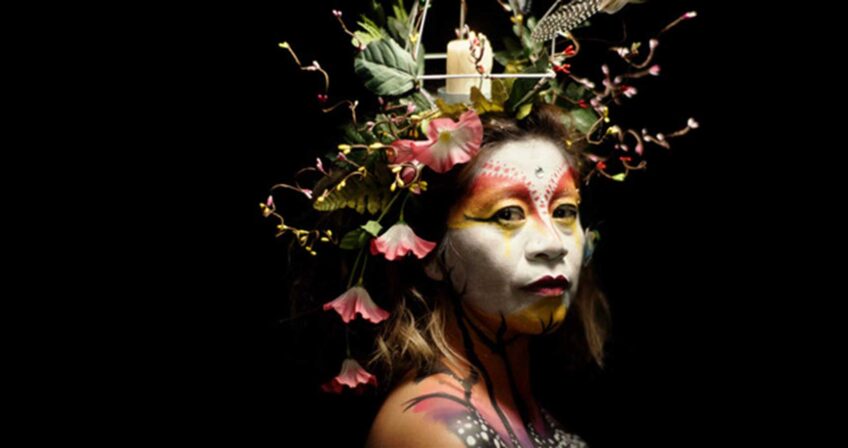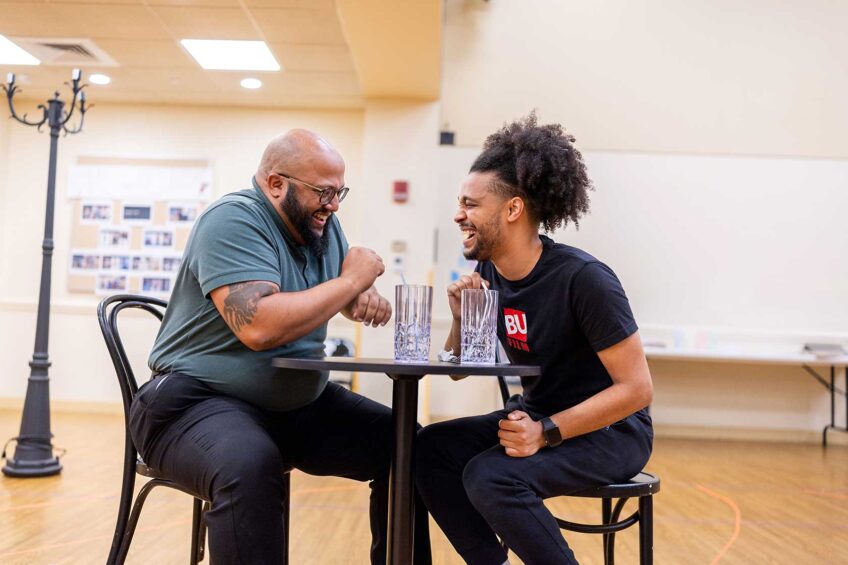
Rachelle Ferrell started her superb set at Scullers Jazz Club with questions that the audience has been asking her: “What have you been doing? Where have you been?”
Her response was short: “I know, it’s been a moment and I have a lot to share. … It feels like it’s been ten thousand and seventeen years.”
For the fabulously gifted jazz vocalist the “sharing” over a 1 hour and 20 minute set was extraordinary, an opportunity to herself as a mature artist at seemingly her highest mark.
She began her performance with the Survivor from the upcoming album titled The Art and Soul of Rachelle Ferrell, a funk-driven blues that depicts the backside of a bad romance.
Ferrell, as everyone during her set witnessed, is mightily gifted, possessing a vocal range that easily travels the ranges from bass to soprano, which is a talent seldom heard performing American jazz on the level of excellence that she performs.
More than that, Ferrell acknowledges her role as a medium with music as a mode.
“I come to satisfy you. I come to please you. I come to make you feel good,” she cooed from the stage to her enthralled audience intimately packed into the room overlooking the Charles River on a crisp autumnal half-mooned night.
At the age of 50, Ferrell stands at the middle of her life fully developed as an American singer, possessing an enormous, meticulously trained talent and the ability to move her audience with awe into states of tears, lust, anger or resignation. She proclaims song in tonal ranges that pay tribute to the best of what Sarah Vaughn and Aretha Franklin have produced.
Farrell, who grew up outside Philadelphia, started with music early at 3 years old, playing the violin. Soon it was clear that her talent at voice was her prime instrument. Before and after attending Berklee College of Music she would sing backup for contemporary pop artists, including Vanessa Williams, Patti LaBelle, George Duke and Lou Rawls.
She is remembered by the broader American audience for her ode to the comedian Bernie Mac during his memorial service in 2008 where she and her composition Thank You Lord, that celebrated the “life of the little chocolate boy from the south side, tall dark and handsome was he, with a smile worth more than a king’s ransom to me.”
But jazz is Ferrell’s home.
Her rendition of My Funny Valentine is stunning. A show tune first performed in Richard Rodgers and Lorenz Hart’s 1937 musical Babes in Arms, the song conveys the sentiments of a lover, the deep compassionate concerns of the heart.
Ferrell reifies the intended meaning of the song with huge feeling and the sentimentality that leaves behind any notions of triviality or casual concern.
With Bye Bye Black Bird, Ferrell channels Ella Fitzgerald exactingly. Her abilities at scatting reminds the audience of the genre’s exciting appeal and the electric current it can give to the most ordinary songs.
Ferrell ended her set with Autumn Leaves, a song made popular during the heydays of jazz and was introduced popularly by Frank Sinatra.
Ferrell made the song a communal event by getting the entire audience to sing portions of its lyric as she glided effortlessly off the stage at the completion of her magnificent performance.






